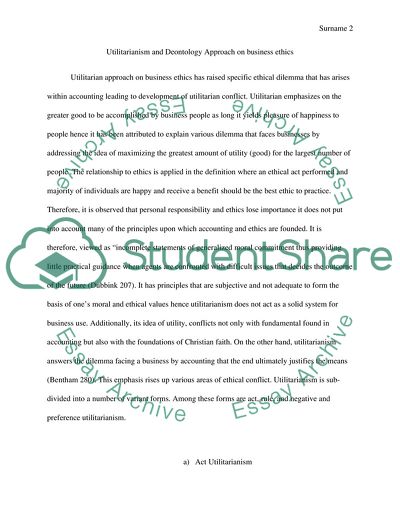Cite this document
(Deontological and Utilitarianism Ethics Essay Example | Topics and Well Written Essays - 2000 words, n.d.)
Deontological and Utilitarianism Ethics Essay Example | Topics and Well Written Essays - 2000 words. https://studentshare.org/ethics/1822288-deontology-ethics-and-utilitarian-ethics
Deontological and Utilitarianism Ethics Essay Example | Topics and Well Written Essays - 2000 words. https://studentshare.org/ethics/1822288-deontology-ethics-and-utilitarian-ethics
(Deontological and Utilitarianism Ethics Essay Example | Topics and Well Written Essays - 2000 Words)
Deontological and Utilitarianism Ethics Essay Example | Topics and Well Written Essays - 2000 Words. https://studentshare.org/ethics/1822288-deontology-ethics-and-utilitarian-ethics.
Deontological and Utilitarianism Ethics Essay Example | Topics and Well Written Essays - 2000 Words. https://studentshare.org/ethics/1822288-deontology-ethics-and-utilitarian-ethics.
“Deontological and Utilitarianism Ethics Essay Example | Topics and Well Written Essays - 2000 Words”. https://studentshare.org/ethics/1822288-deontology-ethics-and-utilitarian-ethics.


